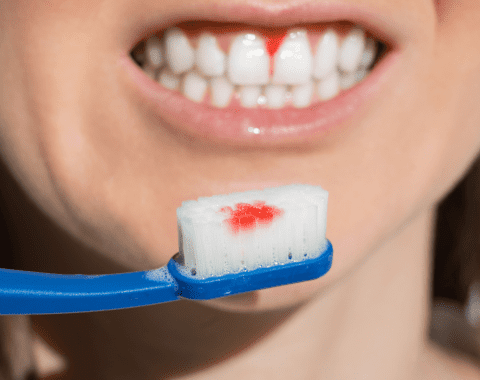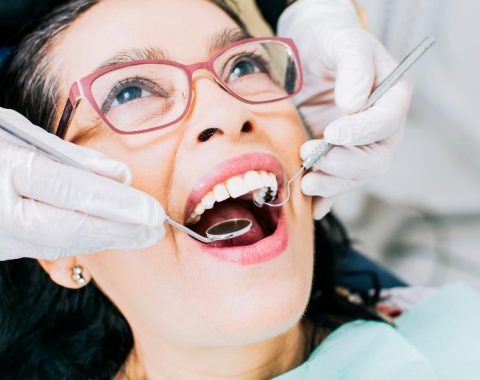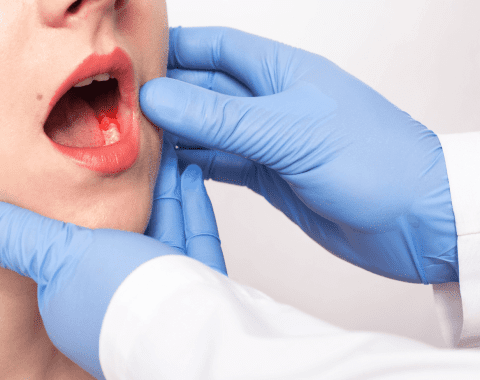Oral thrush is a common infection of the mouth. It is caused by a type of yeast called Candida/ candidiasis. Candida is a normal part of the bacteria that live in your mouth. But when the yeast grows too much, it can cause an infection.
Oral thrush can happen to anyone. But it is more common in infants, the elderly, and people with certain medical conditions, such as diabetes or cancer. Oral thrush can also happen after taking certain medications, such as steroids or antibiotics.

There are a number of things that can trigger the growth of Candida. These include:
* Antibiotics: Antibiotics can kill the good bacteria in the mouth, throat, and digestive tract. This can allow the yeast to grow out of control.
* Dentures: Dentures can provide a warm, moist environment for the yeast to grow.
* Illness: A weakened immune system can allow the yeast to grow out of control. illnesses that can cause a weakened immune system include HIV/AIDS, cancer, and diabetes.
* Smoking: Smoking can irritate the lining of the mouth, throat, and digestive tract. This can allow the yeast to grow out of control.
* Stress: Stress can weaken the immune system. This can allow the yeast to grow out of control.
Symptoms of oral thrush include:

Oral thrush can cause a number of uncomfortable symptoms. These include:
* Burning sensation in the mouth.
* Difficulty swallowing.
* Painful swallowing.
* White patches on the tongue, cheeks, roof of the mouth, gums, or tonsils.
* Redness of the tongue.
* Loss of taste.
* Painful cracks at the corners of the mouth.
If you have any of these symptoms, see your dentist or doctor. They can diagnose oral thrush and prescribe treatment.
Treatment for oral thrush usually includes antifungal medicine. The medicine may be in a pill form or a liquid that you swish in your mouth and then swallow.
Prevention of Oral Thrush

There are a number of things you can do to prevent the growth of Candida albicans. These include:
* Avoiding antibiotics: If you are taking antibiotics, it is important to take them as prescribed. Do not stop taking them early.
* Avoiding dentures: If you wear dentures, it is important to clean them regularly. You should also avoid wearing them for long periods of time.
* Avoiding illness: If you are ill, it is important to rest and drink plenty of fluids.
* Avoiding smoking: If you smoke, it is important to quit.
* Avoiding stress: If you are stressed, it is important to find ways to relax.
You can also help prevent oral thrush by practicing good oral hygiene. This means brushing your teeth twice a day and flossing daily. If you wear dentures, clean them regularly and see your dentist or dental hygienist to make sure they fit well.
Oral thrush is a common infection, but it can be treated. If you have any symptoms, see your dentist.

What Happens if I Don’t Treat It?
If you don’t treat oral thrush, the fungus can spread to other parts of your body. In people who are already sick or who have weakened immune systems, oral thrush can spread to the esophagus and cause a more serious condition called esophageal candidiasis.
Oral thrush can also lead to a bacterial infection called bacterial vaginosis in women. Bacterial vaginosis is a condition that can cause problems with pregnancy and it can also make you more susceptible to other infections.
If you have oral thrush, it is important to see your healthcare provider so that you can be treated. Treatment can help you feel better and it can also help prevent the spread of the infection.




